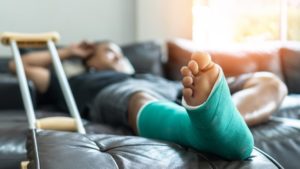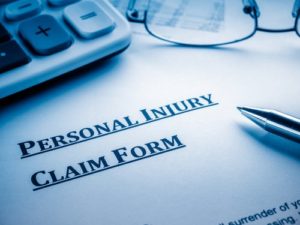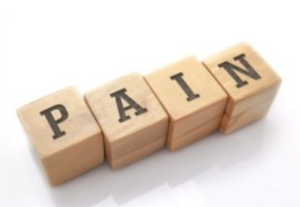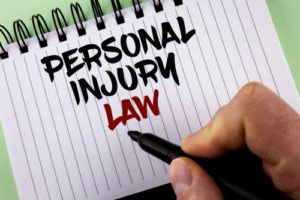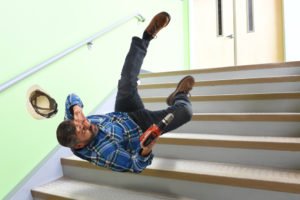
Slip and fall accidents can lead to severe or life-threatening injuries. Dangerous conditions such as wet floors, icy sidewalks, lack of maintenance, and cluttered walkways are just some of the reasons people lose their balance and fall. Generally, property owners or managers are responsible for keeping their premises free from hazards. If they have been negligent in their duty to provide a safe environment for people on their property, then they may be liable for injuries resulting from falls.
However, each victim’s circumstances are unique, and several laws can impact the outcome of a case. If you suffered an injury after a fall on someone’s premises, a Philadelphia slip and fall injury lawyer might be able to help. Getting the medical treatment you need can take a toll on your finances, and it is only fair that you recover compensation from those responsible for your suffering and losses. Call Ben Crump Law, PLLC, at (855) 933-4005 today to learn more about your legal rights and possible actions you can take.
Liability in a Slip and Fall Case
Property owners must take reasonable steps to make sure the public is safe from harm or at least warn them about a dangerous situation on their premises. For instance, they should not put off repairing cracked or broken surfaces, and clearing spills, debris, or snow on the floor or pavement. Otherwise, slip and fall injuries may happen, making the property owner liable for the accident.
Invitees
In Philadelphia, the purpose of your presence on the property can affect the obligation that the owner owes you. If you were an invitee, the property owner must exercise the highest duty of care in discovering and correcting an unsafe condition or at least warn you about it. Invitees include business, public, and social visitors who had an express or implied invitation. However, the standard of care an owner owes a business invitee is higher than that which they owe a public or social guest.
Licensees
There is no need to receive an express invitation for you to have a licensee status. Some examples of licensees include a friend who visits unannounced and utility workers working on the main water line on the premises. Licensees must meet a higher standard than invitees when it comes to recovering damages because owners do not benefit as much from the presence of a licensee. Nevertheless, property owners may still be liable for injuries if they knew about the hazard and yet failed to warn the licensee or exercise reasonable care in repairing a dangerous condition.
Trespassers
Premises owners do not owe an obligation to trespassers because this classification includes those who do not have permission to be on the premises nor have the lawful right to be there.
Your status on the property where you suffered injuries can impact your case considerably. Liability and compensation issues can complicate your case, and it would be wise to consult with a lawyer to understand more about your legal position.
Proving Negligence in Slip and Fall Accidents
Premises liability and personal injury law usually govern slip and fall cases in Philadelphia. To prove another party’s negligence, you first need to establish that the property owner owed you a duty of care to protect you from a safety hazard. Then, you must show that the owner breached that duty, which subsequently led to your injuries.
A typical example would be a poorly-lit stairwell in a building that a premise owner has not addressed despite repeated requests from a tenant. If someone falls as a result of the hazardous condition on the stairs, the court may find the owner negligent.
Slip and fall incidents are not always straightforward cases. It can be challenging to prove that a property owner knew or should have known about the dangerous situation. Coming up with substantial evidence can be easier with a Philadelphia slip and fall injury lawyer on your side. Reach out to Ben Crump Law, PLLC to find out if you are eligible to file a suit against a negligent property owner.
For a free legal consultation with a slip and fall injury lawyer serving Philadelphia, call (855) 933-4005
Factors That May Affect Settlement
When an insurance company offers a settlement, the amount mainly depends on the severity of your injuries, liability, degree of fault, and other details of the case. Most of the time, the responsibility lies with the owner of the property if defects on the premises caused the victim’s injuries. If the fall happened in the workplace, the liability might shift to the employer.
Under Pennsylvania’s comparative negligence law (Pennsylvania Consolidated Statutes § 7102), you can still receive compensation even if you were partly responsible for your accident. However, you should be 50% or less at fault, or else you cannot recover damages. Take note that due to your contributory negligence, the court will reduce your liability accordingly. If your damages totaled $100,000, but you were 30% at fault, the court will diminish your financial recovery to $70,000.
Demonstrating that the other party was more at fault than you is crucial to receiving compensation. Hiring a lawyer can benefit you when it comes to presenting evidence of the other side’s fault and maximizing your compensation. Also, this will ensure that you will be able to file your lawsuit within the statute of limitations in Philadelphia or the deadline that the law set for bringing a suit to court, which is two years, according to Pennsylvania Consolidated Statutes § 5524.
Take the First Step in Obtaining the Compensation You Deserve
If you were involved in an accident due to someone else’s action or inaction, get in touch with a Philadelphia slip and fall injury lawyer at Ben Crump Law, PLLC immediately. Your attorney will get started on protecting your rights and discussing your legal options without delay. If you are qualified to pursue damages, you may be able to secure the compensation that can help alleviate your suffering and pay for your medical expenses.
Call our office today at (855) 933-4005 to tell us more about your case or to inquire about your free consultation.
Call or text (855) 933-4005 or complete a Free Case Evaluation form

